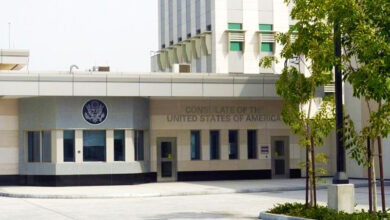
The World Investment Report 2025, issued by the United Nations Conference on Trade and Development (UNCTAD), shows Kuwait attracted $614 million in foreign direct investment (FDI) in 2024, marking a significant decline from $2.1 billion in 2023. FDI outflows from Kuwait also dropped from $11.2 billion in 2023 to $10.3 billion in 2024.
At the regional level, the UAE emerged as a top global investment hub, attracting $45.6 billion in FDI, ranking tenth worldwide. Its outward investments reached $23.4 billion. Saudi Arabia recorded $16 billion in FDI inflows and $22 billion in outflows; Qatar attracted $460 million and recorded $1.6 billion in outflows; Bahrain’s inflows reached $2.5 billion, with $275 million in outflows and Oman reported $8.7 billion in inflows and $1 billion in outflows.
Globally, FDI flows fell by 11% in 2024 due to rising geopolitical tensions, restrictive trade policies, and sluggish growth in major economies. China saw a 29% drop in FDI inflows, while Europe experienced a sharper 50% decline. Meanwhile, the United States saw a 20% increase in FDI, maintaining its top position globally.
Africa experienced a 75% surge in FDI to $96 billion, largely due to mega-projects such as the Ras El-Hikma development in Egypt. Egypt attracted $46 billion in FDI, propelling it from 32nd to 9th place globally in terms of investment attractiveness.
Asia remained the leading region, accounting for 40% of global FDI, despite a 3% decline to $605 billion.
In the digital economy, global FDI rose 14%, driven by growth in ICT manufacturing, digital services, and semiconductors.
However, the benefits were concentrated in just 10 countries, which accounted for 80% of all new digital projects. Developing countries continue to face barriers such as inadequate infrastructure, regulatory challenges, and limited digital skills.
The report warned that current global investment levels remain far below the estimated $4 trillion needed annually to achieve sustainable development goals in developing economies.












